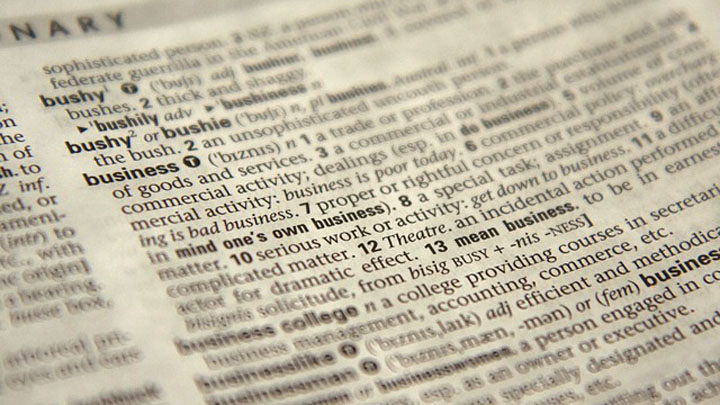Why I’m glad I didn’t have to learn English as a second language…

English is proving itself to be one of the great languages of the world. It now pretty well fills the scope as an international lingo, in diplomacy, politics and commerce, and of course computing!
One of the great advantages of English has always been its ability to borrow (some would say steal) from many other languages, all the way from ancient Roman and Greek, through Saxon, Norse, French and Gaelic and into modern times when it absorbed words from Egypt, India, Africa, American Indians and even Eskimo – plus of course many others, too many to mention here! In fact, I doubt if there are many, if any, words that can truly be called English at all, it’s a language made up largely of every other language.
One of the quirks of the language, especially in the hands of the English people themselves, is the way that many words completely change their meaning. Through use and misuse, changes that are often forced on us by an overactive media and looking for more dynamic ways of describing a situation!
Take for instance the word ‘legend’. This is a word most often used in sport such as, “Footballer Bill Bloggs is a legend, the greatest captain Mumbles Athletic have ever had!” But look up the word in a dictionary and this is what you read:
1. A non-historical event or unverifiable story handed down by tradition from earlier times and popularly accepted as historical.
2. The body of stories of this kind, especially as they relate to a particular group or clan.
3. An inscription, especially on a coat-of-arms, monument or under a picture.
4. A table on a map or chart, listing and explaining symbols used.
Then there’s ‘sophisticated’, which has come to mean smart, classy, fashionable and civilised. But it really has its origins in the word ‘sophistry’, described in the dictionary as:
1. A subtle, tricky, superficially plausible, but generally fallacious method of reasoning.
2. A false argument.
While even the word sophisticated includes in its descriptions, “The use of sophistry, a quibble or fallacious argument”.
Another word used freely by the media is ‘Hero’. Usually treated with less than the attention it deserves, with teams of cricketers being called heroes for winning a match, or a swimmer for winning a race. Another quick glance at the dictionary, and we see:
1. A man or woman of distinguished courage, admired for brave deeds and noble qualities.
2. A person who, in the opinion of others has performed a heroic act, being of godlike prowess, an immortal being.
When I was young the word ‘gay’ referred to having a good, happy time, for anyone, but somehow, between then and now, that meaning has completely disappeared, to be replaced by a homosexual connotation. Nothing wrong with that, but the interesting question is, how do these changes come about? The same applies to ‘decimated’ used now to describe something being completely wiped out, whereas originally, as the ‘deci’ prefix suggests, it meant to be reduced to ten percent of an original, or to select one person in ten to be killed!
The computer age has given birth to many word meaning changes… a ‘mouse’ no longer squeaks or has a tail, a ‘program’ doesn’t refer to something on the radio any more, ‘hardware’ isn’t ironmongery, it’s the physical parts of a computer and ‘the web’ has no relationship to any spider!
All of this is of course, a part of being the living language I mentioned at the beginning of this article, its ability to change itself to match all of the new requirements made of it, the fact that many words are recognisable, even to someone who has never spoken a word of English in their life, and the more English is used around the world, the stronger it becomes, with a multitude of equipment items having any signage printed in English.
It all certainly makes me glad I was born in an English speaking country. I’ve been told it is a dreadful one to learn if you don’t study it from birth! Just imagine, apart from the many changing uses of words to be kept pace with, there are also all those that sound the same but are spelt differently like ‘there’, ‘their’ and ‘they’re’ for instance. Or the ones that are spelt similarly but sound quite different – ‘through’ and ‘slough’, not to mention individual letters that change from word to word, like a ‘c’ for instance, which can be pronounced ‘SS’ or ‘k’ or even, occasionally ‘ch’.
Yes, I’m very glad I’m not just beginning to learn the language, it’s making my mind buzz just writing about it!
Share your thoughts on English the living language with me below.









 Proudly Australian owned and operated
Proudly Australian owned and operated